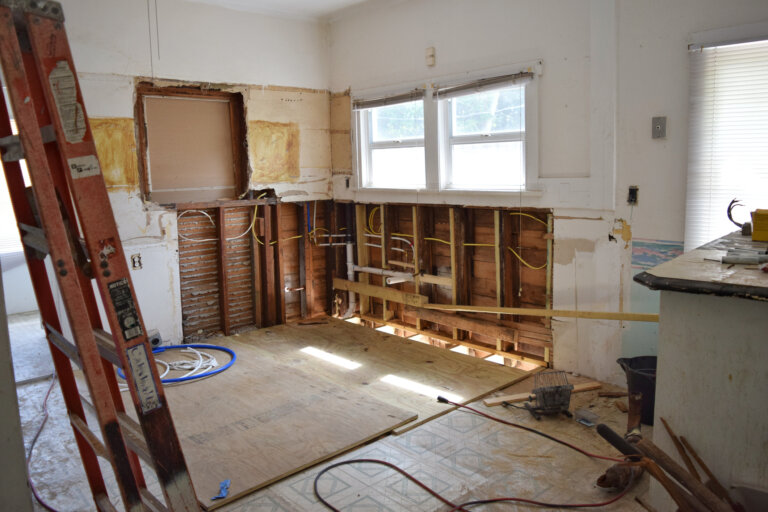Flipping houses can be a lucrative real estate strategy, especially in Florida’s dynamic property market. With its steady population growth and attractive coastal lifestyle, communities like Palm Harbor continue to draw both homebuyers and real estate investors. However, the path to a profitable house flip involves more than renovation and resale—it also requires a solid understanding of the legal landscape.
The Law Offices of Jeffrey A. Herzog helps clients throughout Palm Harbor navigate the legal challenges of real estate transactions, including those involved in house flipping. Before you invest time and money into your next flip, it’s important to understand the legal considerations that can impact your success.
Understanding the Basics of House Flipping
House flipping typically involves purchasing a property below market value, making improvements to increase its appeal and resale value, and then selling it quickly for a profit. While the concept is simple, the legal execution can be complex, especially in a regulated market like Florida.
Key Legal Considerations When Flipping Houses in Florida
Title and Property History
Before closing on a property, conduct a thorough title search to ensure there are no liens, encumbrances, or unresolved legal issues. In Florida, unpaid property taxes, contractor liens, or HOA violations can transfer with the property, creating unexpected liabilities for the new owner. Always work with a real estate attorney or title company to ensure a clean title.
Disclosure Requirements
Florida law requires sellers to disclose any known defects that materially affect the value of the property and that are not readily observable. If you flip a house and fail to disclose a defect, such as:
- mold,
- foundation issues,
- or prior flood damage
you could face legal action from the buyer, even after the sale closes. Proper documentation and professional inspections can help you meet disclosure obligations and avoid future liability.
Permit Compliance and Code Violations
Renovating a property often requires building permits for work like electrical upgrades, plumbing, roof replacements, and structural changes. Failing to obtain or close permits properly can result in fines, delays, and even lawsuits. Municipalities like Palm Harbor have strict codes, and unpermitted work discovered during or after a sale can derail your investment.
To stay compliant:
- Verify existing permits before purchasing the property.
- Hire licensed contractors.
- Ensure all required inspections are completed before selling.
Contractor Agreements and Liability
Hiring reputable contractors is crucial for both quality and legal compliance. All agreements with contractors should be in writing and include:
- the scope of work,
- payment terms,
- timelines,
- and dispute resolution clauses.
Florida law also requires contractors to be properly licensed, especially for regulated trades like plumbing and electrical.
Working without a contract or using unlicensed workers can expose you to legal liability, particularly if the work is faulty or leads to injury or property damage.
Financing and Holding Strategies
Some house flippers use cash to purchase properties, while others rely on hard money loans or short-term financing. Be sure that any financing arrangement complies with Florida’s real estate lending laws and that all terms are clearly documented.
If you’re purchasing under an LLC or other entity structure, work with a business attorney to ensure the entity is properly formed and maintained to limit your personal liability.
1031 Exchanges for Tax Deferral
If you’re reinvesting profits from one flip into another property, you may be able to defer capital gains taxes through a 1031 exchange. However, strict IRS rules apply regarding timelines, property types, and use. An experienced attorney or tax professional can guide you through the process to ensure compliance.
Zoning and Land Use Restrictions
Zoning regulations vary by city and county and may limit how a property can be used or improved. For example, some areas in Palm Harbor may restrict short-term rentals, multi-family conversions, or significant structural changes. Always verify zoning laws before purchasing or making renovation plans.
Protecting Your Investment with Legal Guidance
Flipping houses in Florida offers exciting financial opportunities, but the risks can be just as significant. From permits and disclosures to financing and contractor disputes, each flip comes with its own legal landscape.
A well-executed flip starts with thoughtful planning and legal compliance. Working with a qualified real estate attorney helps protect your investment and avoid common pitfalls.
Schedule a Consultation with a Palm Harbor Real Estate Attorney
Whether you’re a first-time flipper or a seasoned investor, legal support is a critical part of a successful real estate strategy. The Law Offices of Jeffrey A. Herzog can guide you through the legal aspects of buying, renovating, and selling properties in Florida. Our firm helps clients in Palm Harbor and surrounding areas navigate real estate law with clarity and confidence.
Contact us today to schedule a consultation and get the legal guidance you need for your next real estate investment.

